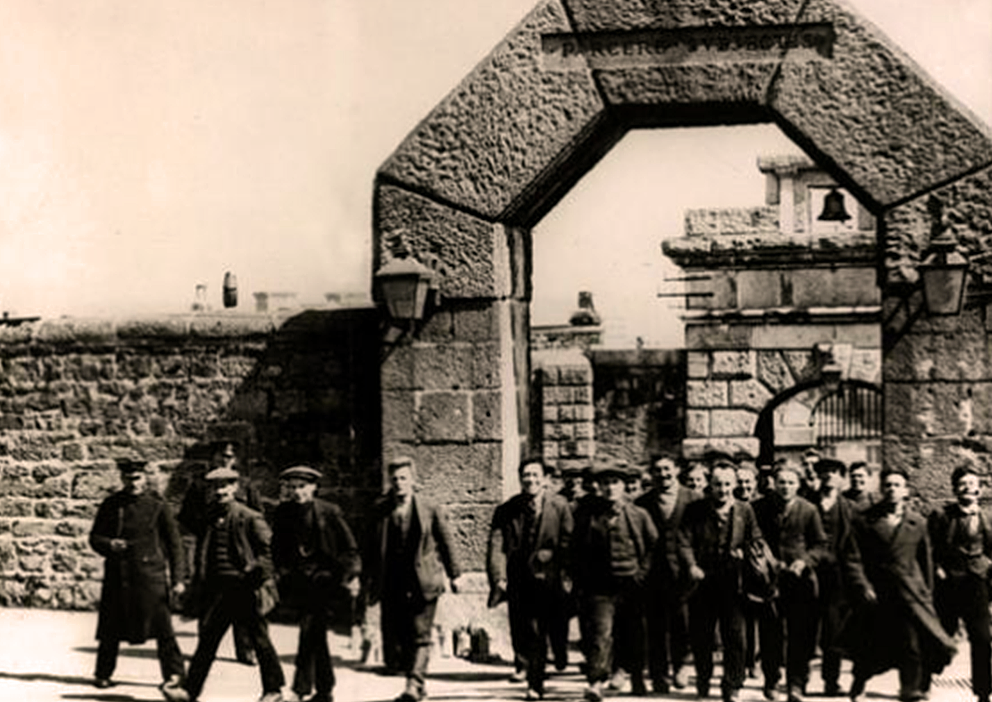
| Back| BACK |
 |
 |
Conscientious objectors leaving Dartmoor Prison |
In 1916 the quarry just outside Dyce village in Aberdeenshire was an univiting place. The quarry largely close but with large qualities of rocks still needs crushing for road and aother building projects. The quarry owners anxious to survive begged the local Tribunal not to send any more of their men to the army. It's not clear whether soem deal was made with the qurry owners and the home office but the 250 conscientious objectors that arrived were a godsent.
|
From 1917 to 1920 Dartmoor prison was emptied of prisoners and of many of its guards were relocated or dismissed. Lock were removed from doors and many rules were suspended and it was converted into a Home Office Work Centre. |
| oving about and speaking in accents that proclaim them to be strangers to the neighbourhood. The speech of several of them is that of educated men, and their general behaviour that of men who have moved in circles of culture. These young men are members of a large party, numbering about 250, of conscientious objectors to military service, who had been engaged for the past week or two in the preparation of road metal at Dyce Quarries. The men belong to various classes and trades and professions, and it is stated that several of them held scholastic appointments at Oxford University. In the vicinity of the quarries is a large encampment of huts, in which the conscientious objectors are housed, but several of them chose to live in lodgings in the village of Dyce rather than in the huts. When not engaged at work they spend their leisure time in a variety of ways. The objectors include many who belong to such religious bodies as the Plymouth Brethren and the Quakers, while others hold Socialistic views. Frequently the men hold meetings among themselves in camp, those who hold similar ideas being drawn together to discuss the subjects of particular interest to them. So far as I have heard, there has been no attempt at public speaking, except that an objector addressed a religious meeting one evening. It is stated, however, that some of the men have been expressing their views on political matters and on the subject of military service in private conversation with younger members of the community, and this has given rise to a good deal of adverse talk in the district. Many of the residents, indeed, feel strongly on the point. They object to an anti-military service being carried out by means of such conversations, and the opinion has been freely given expression to the steps that ought to be taken to prevent such a practice by restricting the movements of these shirkers. |
|